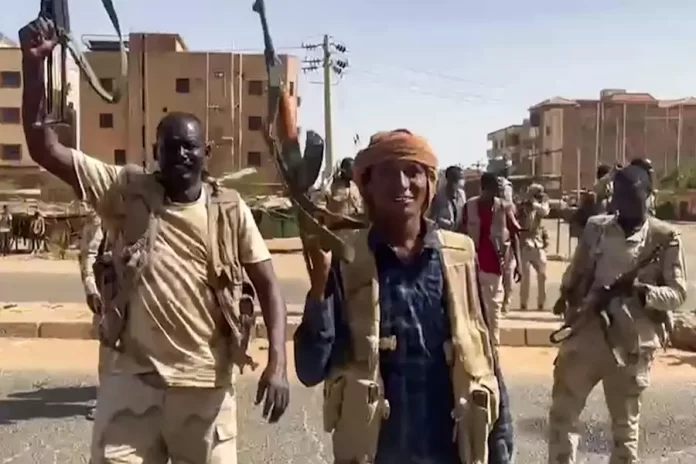Even though opposing factions agreed on Thursday to extend a ceasefire for another 72 hours, fighting is still taking place in the capital of Sudan, Khartoum, raising fears of escalating violence in the days to come.
The Sudanese Armed Forces (SAF) reaffirmed their intention to uphold the unilateral cease-fire on Thursday.
The Rapid Support Force (RSF) announced on Thursday that it has also agreed on another 72-hour truce beginning on Friday in response to the army for the first time.
The US, UK, Saudi Arabia, and UAE—the so-called “quad”—as well as the African Union, IGAD, and the United Nations all hailed the move.
ALSO READ: Despite the ceasefire, the UN warns of more displacement from Sudan
In a joint statement, they stated, “We also welcome their readiness to engage in dialogue toward establishing a more long-lasting cessation of hostilities and ensuring unhindered humanitarian access.”
The SAF asserted that it is thwarting a sizable RSF deployment in Khartoum, where some residential neighborhoods have devolved into battlegrounds, and that it controls the majority of Sudan’s regions.
Despite the ceasefire, witnesses claim that Sudanese fighter jets, air strikes, and anti-aircraft fire continued to target paramilitary positions in Khartoum.
Residents of Omdurman, the twin city of Khartoum, recounted “the worst day” so far as their districts were repeatedly hit by warplanes.
The battle since April 15 has resulted in at least 512 deaths and about 4,200 injuries, according to the Sudanese health ministry.
Experts predict that the violence in Sudan will pick up in the next few days and could get worse at any time.
On Monday night, a 72-hour cease-fire was declared, providing Khartoum a measure of quiet and allowing for the orderly exodus of foreigners trapped within the war-torn nation.
Despite the truce, the country’s doctors’ union reported that at least eight civilians died in the fighting on Wednesday. More than two-thirds of the nation’s hospitals, including 14 that were damaged during the conflict, were also reported to be inoperable.
In a nation where one-third of the population, or roughly 15 million people, require food, the World Food Programme has warned that the unrest could cause millions more to go hungry.
Speaking on Thursday from Port Sudan, Abdou Dieng, the head of UN aid in Sudan, said he was “extremely worried about the situation,” with food supplies being a top worry.
Abdel Fattah al-Burhan, the commander of the army, is at odds with Mohamed Hamdan Daglo, the paramilitary RSF’s leader, a force that the Omar al-Bashir administration unleashed in Darfur.
Burhan and Daglo overthrew the government in a coup in 2021, but since then, they have fallen out and started a war, further destabilizing Sudan.
Artillery exchanges and airstrikes have been used throughout the combat. Some areas of greater Khartoum are in ruins as a result of the deadly chaos. Numerous countries have attempted to end the fighting with a truce but have yet to have positive results.













